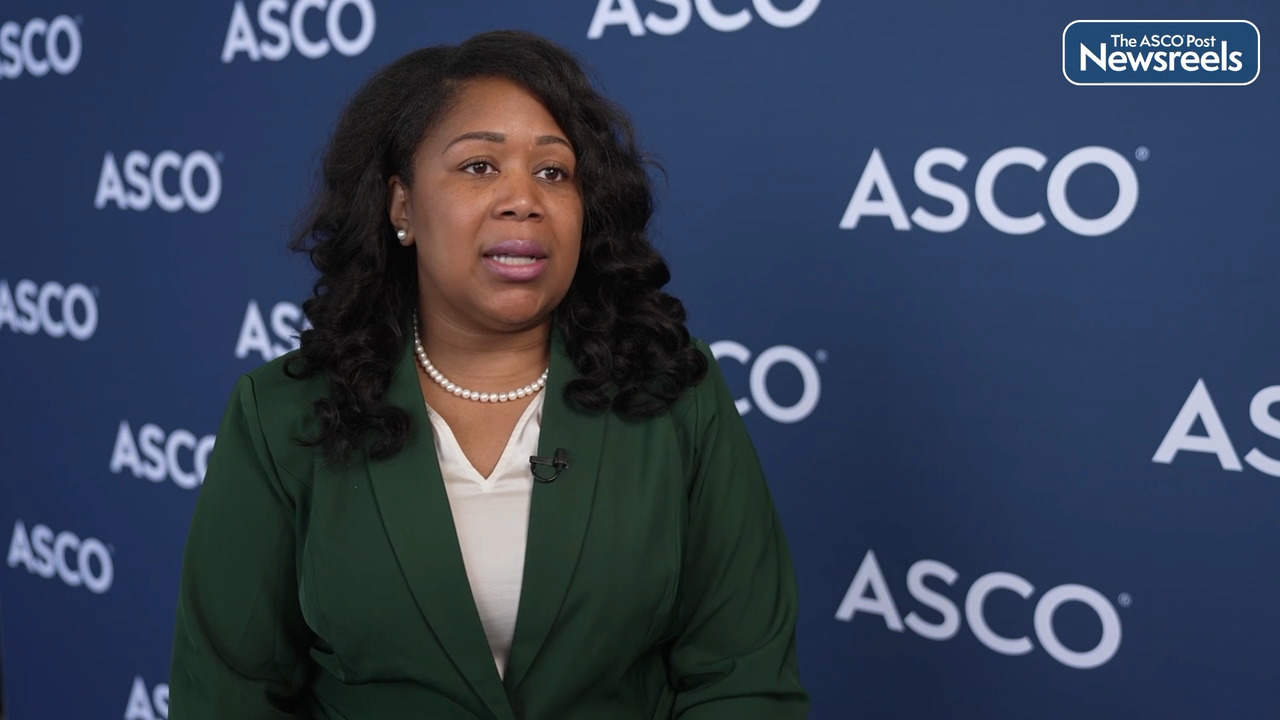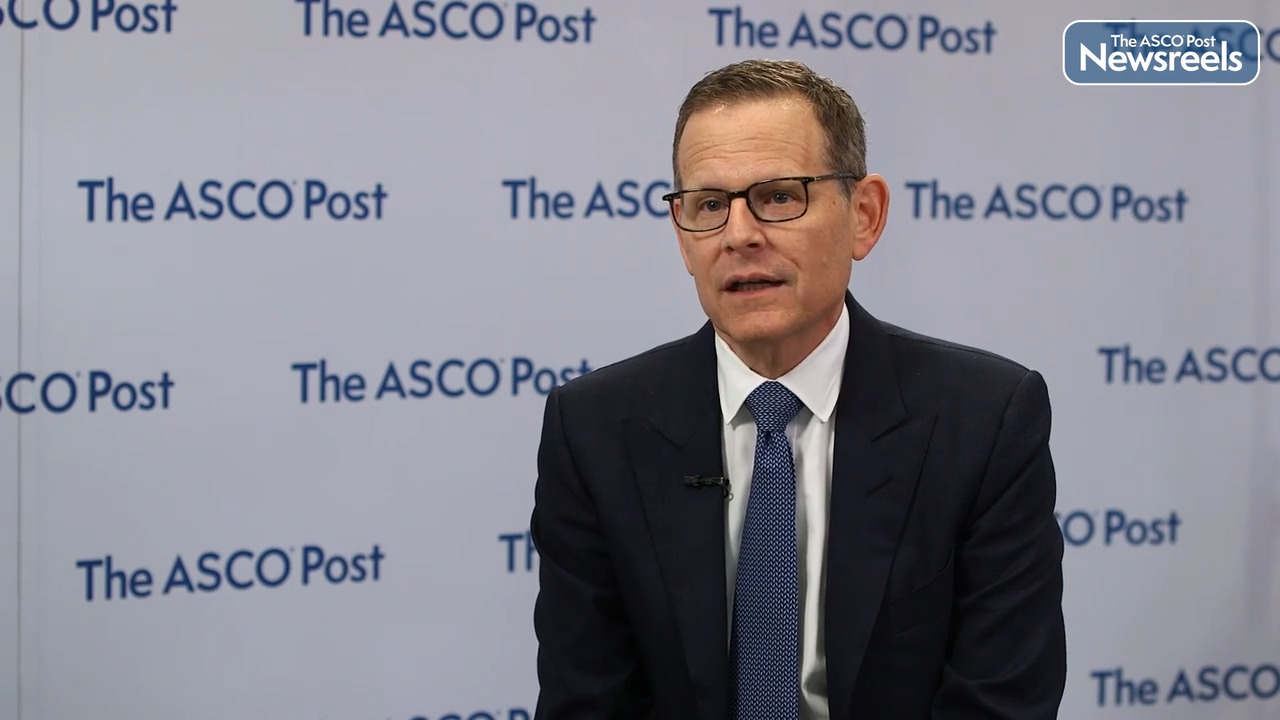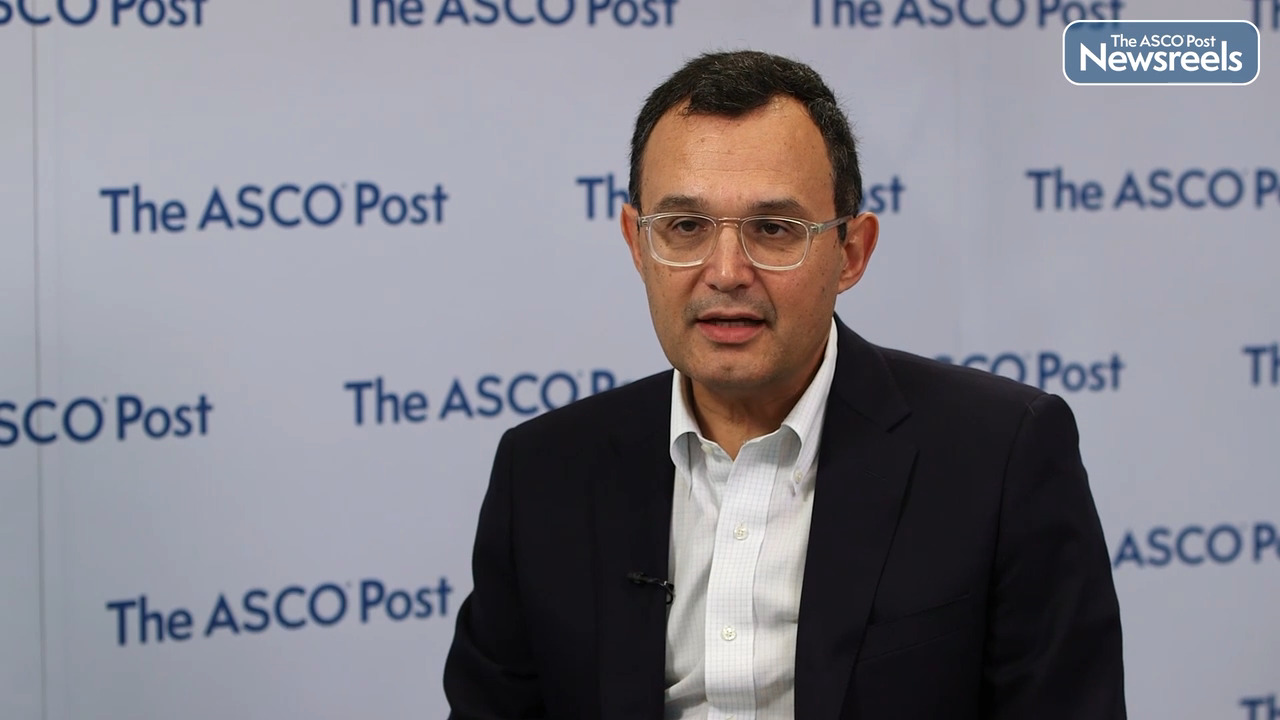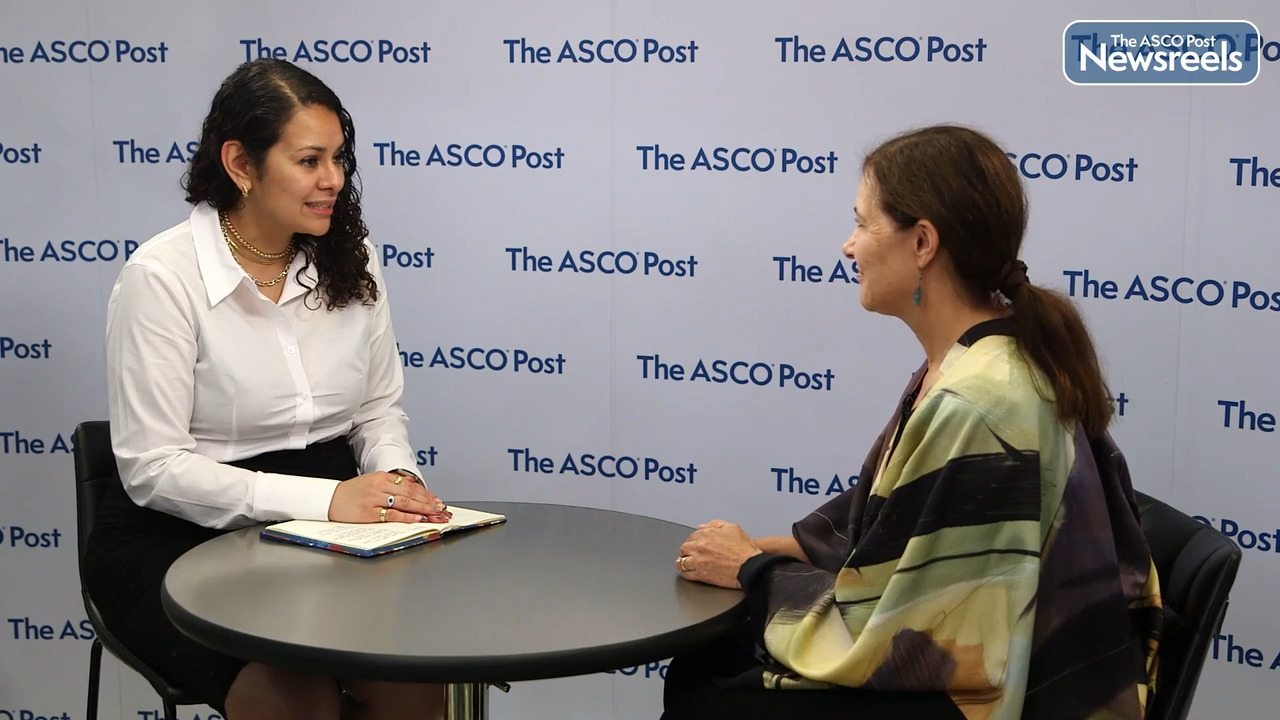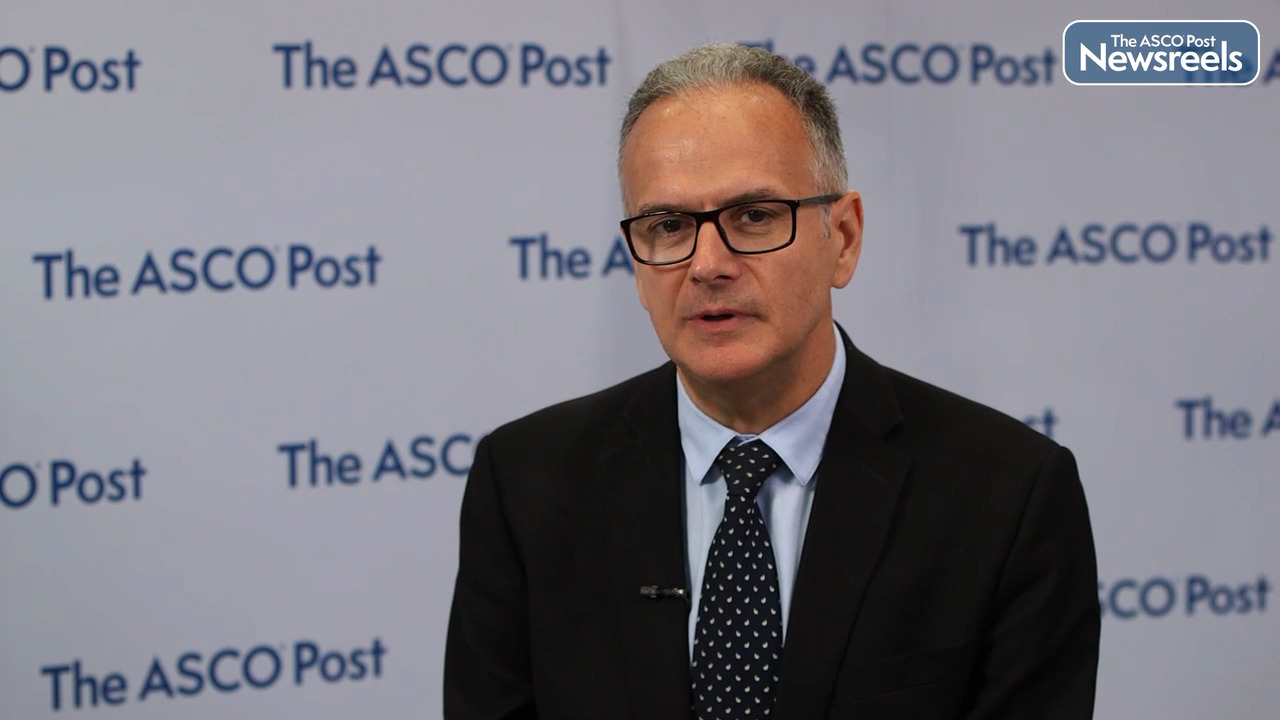Transcript
Disclaimer: This video transcript has not been proofread or edited and may contain errors.
Muhit Özcan:
Diffuse large B-cell lymphoma is typically treated with rituximab plus cyclophosphamide, doxorubicin, vincristine, and prednisone, a regimen known as R-CHOP, but novel therapies are needed. A recent phase III study showed that replacing vincristine in R-CHOP with the antibody-drug conjugate polatuzumab vedotin was a viable approach in diffuse large B-cell lymphoma.
ROR1 is an onco-fetal transmembrane protein that's expressed in a number of hematological malignancies, including diffuse large B-cell lymphomas. Zilovertamab vedotin is an antibody-drug conjugate comprising an anti-ROR1 antibody plus a cleavable linker, and the antimicrotubule cytotoxin monomethyl auristatin E, that has shown promising efficacy and manageable safety in patients with relapse or refractory hematological malignancies. The single-arm, open-label, phase II waveLINE-007 study has been designed to investigate zilovertamab vedotin in combination with R-CHP in patients with previously untreated diffuse like B cell lymphomas.
Part one is being conducted to determine the safety and tolerability and recommended phase II dose of zilovertamab vedotin plus R-CHOP. Part two will be conducted to investigate the efficacy of zilovertamab vedotin plus R-CHP at the recommended phase II dose. The primary objectives of waveLINE-007 are to evaluate complete response rate based on Lugano criteria and to evaluate the safety and tolerability of zilovertamab vedotin plus R-CHP. Secondary objectives include evaluating objective response rate and the duration of response per Lugano criteria. Progression-free survival, overall survival, and the pharmacokinetics of zilovertamab vedotin plus R-CHP are exploratory.
In part one, which is the dose escalation and confirmation part of the study, approximately 45 patients will receive treatment with zilovertamab vedotin plus R-CHP. The starting dose of zilovertamab vedotin is 1.75 milligram per kilogram plus R-CHP administered intravenously every 3 weeks for six cycles. Dose escalation will be based on the modified toxicity probability interval design up to a minimum of 2.5 milligram per kilogram, with the target dose limiting toxicity rate of 30%.
In part one, which is the dose escalation and confirmation part of the study, approximately 45 patients with receive treatment with zilovertamab vedotin plus R-CHP. The starting dose of zilovertamab vedotin is 1.75 milligram per kilogram plus R-CHP administered intravenously every 3 weeks for six cycles. Dose escalation will be based on the modified toxicity probability interval design up to a maximum of 2.5 milligram per kilogram, with a target dose limiting toxicity rate of 30%. In the event of dose-limiting toxicities at the starting dose, the dose can also be deescalated to 1.5 milligram per kilogram.
In part two, approximately 30 patients with received zilovertamab vedotin at the recommended phase II dose plus R-CHP intravenously every 3 weeks for six cycles or up to eight cycles for patients with high-risk disease. Eligible patients must be 18 years or older, have histologically confirmed diffuse large B cell lymphoma per WHO criteria, have PET-positive disease, have an ECOG performance status 0 or 1, and have an adequate organ function. Patients must not have received prior treatments for diffuse large B cell lymphoma patients with a history of transformation of indolent disease at diagnosis of primary mediastinal B-cell lymphoma, ongoing peripheral neuropathy of grade 2 or higher, or active central nervous system lymphoma will be excluded. Recruitment for waveLINE-007 is currently ongoing in Canada, Israel, Italy, Poland, Korea, Spain, and Turkey. Results from the waveLINE-007 study will provide insight into the efficacy and safety of zilovertamab vedotin plus R-CHP in patients with previously untreated diffuse large B-cell lymphomas.
